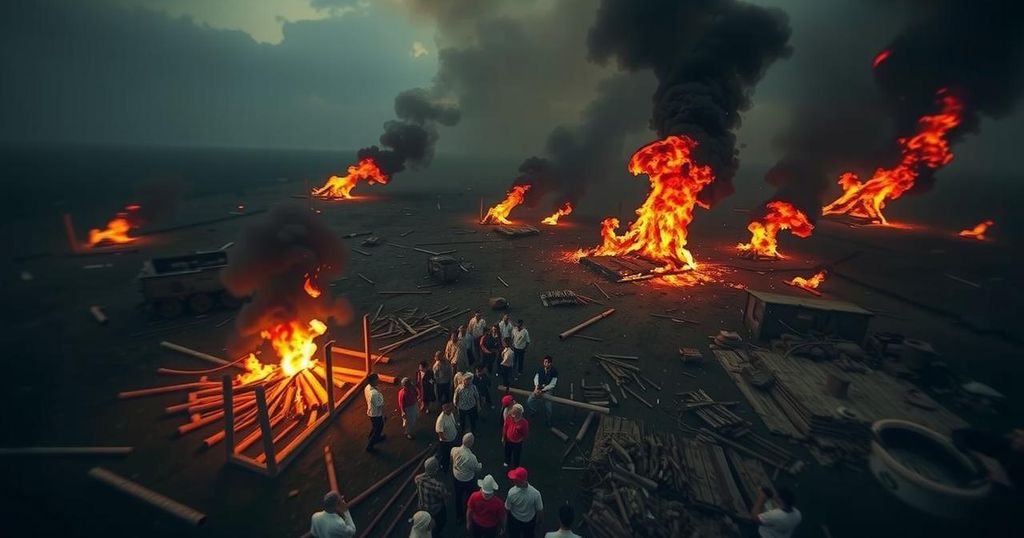Sudan Faces Imminent Threat of Becoming a Failed State, Warns NRC Chief
Sudan is on the verge of becoming a failed state due to civil strife and the fragmentation of civil society. Jan Egeland of the Norwegian Refugee Council warns that widespread starvation and violence among armed groups complicate the crisis, with over 10 million displaced and growing concerns of ethnic cleansing. He calls for urgent international aid and investment to prevent a larger refugee crisis.
Sudan is at a critical juncture, teetering on the brink of becoming a failed state due to the ongoing civil war and the fragmentation of its civil society. Jan Egeland, the head of the Norwegian Refugee Council (NRC), emphasized that the existing humanitarian crisis is largely fueled by conflicts among the major military factions, namely the army and the paramilitary Rapid Support Forces (RSF), coupled with numerous smaller ethnic militias wreaking havoc on civilians. This violent landscape has forced over 10 million people from their homes, pushing the nation towards starvation.
Egeland’s observations following his trip to Sudan reflect the alarming severity of the humanitarian emergency, which he categorizes as the largest witnessed during his tenure. Notably, he remarked on the near-ubiquity of starvation within the country, with the World Health Organization confirming its widespread nature. Soup kitchens, vital for providing sustenance to the starving populace, have shuttered due to inadequate funding. The NRC head underscored the dire implications of this humanitarian neglect, stating that existing aid efforts merely prolong suffering rather than prevent mortality.
The situation is exacerbated by the alarming projections of food security experts, who warn that as many as 2.5 million individuals could succumb to hunger-related causes by year-end. Egeland criticized the global community, asserting that it has failed Sudan by not ramping up necessary support. He implored that European nations, in their interests to mitigate a refugee crisis, should invest in aiding the Sudanese populace and fostering peace in the region, which he regards as grossly underfunded despite being the world’s most pressing emergency.
The civil conflict has claimed thousands of lives and has led to grave concerns among human rights organizations regarding potential ethnic cleansing and genocide. Efforts toward peace negotiations between the army and the RSF have proven ineffective, with Egeland asserting that combat will cease only when these factions perceive more risks in perpetuating the conflict than in pursuing diplomatic resolutions.
The ongoing conflict in Sudan, which has been raging for approximately nineteen months, has created an environment ripe for humanitarian disaster. The power struggle between the national army and the RSF has catalyzed widespread violence, displacing millions and inducing severe food shortages. As a result, numerous humanitarian agencies have expressed alarm over the deterioration of civil society and the rise of various armed groups, which complicate an already desperate situation. Global organizations, including the World Health Organization, have highlighted the extensive reach of starvation and the urgent need for increased humanitarian support as individuals suffer amidst political turmoil.
In conclusion, Sudan stands significantly threatened by the potential descent into a failed state amidst ongoing civil strife and humanitarian crisis. Efforts to alleviate suffering and prevent widespread mortality are sorely inadequate, with models of starvation being employed as instruments of warfare. As reiterated by Jan Egeland, global stakeholders must prioritize humanitarian aid and peace-building initiatives to avert further catastrophe and ensure a more stable future for the Sudanese people.
Original Source: www.bbc.com




Post Comment